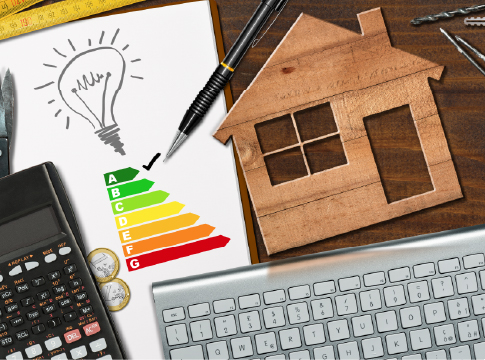Related News
Related News
-
This month, EWEB celebrates 115 years of service Eugene
EWEB celebrates 115 years serving Eugene. As our community grows and challenges increase from aging infrastructure, extreme weather, and climate impacts, EWEB is making thoughtful, long-term investments to ensure safe, reliable service for decades to come.
Find Out More -
EWEB and the UO extend energy generation study
The study is testing whether the UO’s on-site generator can bolster grid reliability and support climate and greenhouse gas reduction goals.
Find Out More -
EWEB and Lane Electric Cooperative sign agreement to transfer EWEB's McKenzie Valley customers
EWEB and Lane Electric Cooperative have reached an important milestone in transitioning electric service from EWEB to Lane Electric in the McKenzie Valley. The two utilities have officially signed agreements for EWEB to sell its electric service territory in the McKenzie Valley to Lane Electric.
Find Out More -
EWEB Board adopts 2026 organizational goals to guide utility priorities
At the January public meeting, EWEB adopted a new set of organizational goals for 2026, providing direction for our work priorities in the year ahead.
Find Out More -
Cold temperatures this week drive highest electricity demand of the winter so far
Frosty conditions in Eugene this week have driven electricity demand to the highest levels so far this winter as heaters strain to keep homes and businesses warm.
Find Out More -
EWEB and the UO launch energy generation pilot project
Pilot project gives EWEB the option to run UO’s on-site natural gas generator this winter, gathering valuable insight into the generator’s efficiency and reliability.
Find Out More -
Sustainability Snapshot - Celebrating Energy Efficiency Projects in the Community
Sustainability Snapshops highlight impactful projects completed by EWEB's Customer Solutions department, as a way to celebrate the meaningful work happening behind the scenes.
Find Out More -
EWEB Sets 2026 Budget and Rates, Advances Evaluation of McKenzie Valley Service Territory Realignment
Taken together, the 2026 budget and rate adjustments and the territory-realignment evaluation reflect EWEB’s dedication to responsible financial stewardship, modern, resilient utility infrastructure, and thoughtful planning for the future.
Find Out More -
EWEB secures $2.5 billion of reliable, affordable, carbon-free energy for customers
The new contract with EWEB’s largest energy supplier, the Bonneville Power Administration, forms the foundation of a diverse energy portfolio.
Find Out More -
EWEB Hometown Heroes compete internationally
Out of 290 teams from 14 different countries, EWEB's Lineman Rodeo team places in the top third of competitors.
Find Out More -
Let's Talk Turkey. Is your family ready for winter?
We're heading into the holidays, but that also means snow, ice, and not-so-nice weather might be in the forecast. Here are some tips to prepare in advance.
Find Out More -
The Bonneville Power Administration Rate Change and Your EWEB Bill
BPA’s finalized rate increase is smaller than projected, and EWEB’s pass-through adjustment effective October 1, 2025 will now be 2.7% for residential customers—down from the anticipated 4%.
Find Out More -
Join the Pledge to Prepare
When you think about getting ready for an emergency, you probably have questions. You aren't alone. Preparing for emergencies can be overwhelming, which is why EWEB has put together a 12-month program to help you and your family get two weeks ready.
Find Out More -
You can’t predict the next disaster, but you can prepare
The earthquake lasted less than a minute. But now the power’s out. The tap runs dry. Cell service is spotty. Would you be ready?
Find Out More -
EWEB completes helicopter installation of salmon habitat features
EWEB adds downed trees and 2,000 tons of gravel to the Uupper McKenzie River below Tamolitch Falls to improve spawning habitat.
Find Out More - Show More
More Landlords are Investing in Energy Efficiency
January 29, 2020

Reducing energy waste in rental properties is a priority for a growing number of Eugene landlords and tenants.
Last year more than 400 local rental properties were upgraded with the help of EWEB efficiency and conservation programs, including rebates, loans, and home audits. Altogether, these efforts saved 500,000 kilowatt-hours of energy and 230 metric tons of carbon. The energy savings is roughly equivalent to taking 50 passenger vehicles off the road, or the carbon sequestered by 300 acres of forest.
Upgrading buildings to reduce energy waste is an important part our community's efforts to move toward carbon neutrality, and improve housing affordability.
Conventional wisdom dictates that rental properties tend to be harder and costlier to heat because landlords have little incentive to invest in improvements. In fact, rental properties that participated in EWEB's Home Energy Score program in 2019 received an average efficiency score of just 3.6 on a 10-point scale (the average home scores a 5 according to the U.S. Department of Energy).
But a growing awareness of the climate risks and social impacts of inefficient housing may be changing that dynamic.
In 2019, landlords invested more than $1.2 million in efficiency upgrades for their rental properties. To assist with upfront costs, EWEB provided more than $500,000 in rebates. The most popular upgrades were ductless heat pumps, followed by windows and insulation.
A ductless heat pump alone can reduce a tenant's electricity costs by up to 50% compared to zonal resistance or electric forced air systems. Adding insulation and replacing old, drafty windows with high-performance windows helps optimize the heating system's efficiency, keeping your tenants comfortable throughout the year while lowering electric bills and reduce energy waste.

